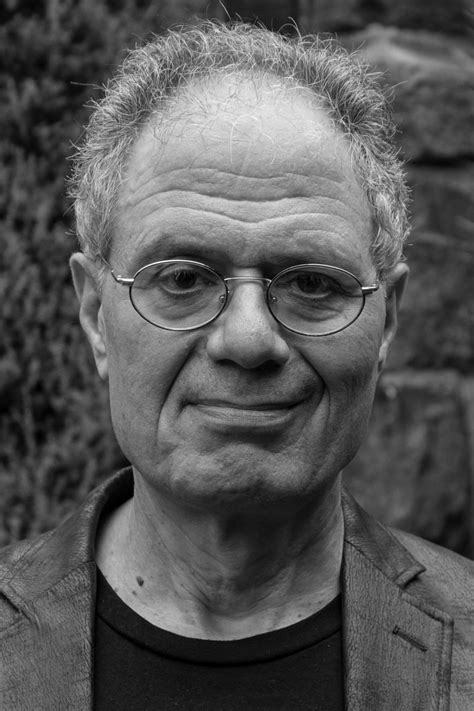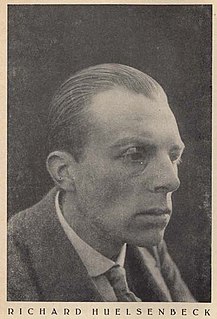Top 210 Epoch Quotes & Sayings - Page 4
Explore popular Epoch quotes.
Last updated on April 16, 2025.
It seems to me that the novel is very much alive as a form. Without any question, every epoch has its own forms, and the novel nowadays cannot resemble that of the nineteenth century. In this domain all experiments are justified, and it is better to write something new clumsily than to repeat the old brilliantly. In the nineteenth century, novels dealt with the fate of a person or of a family; this was linked to life in that period. In our time the destinies of people are interwoven. Whether man recognizes it or not, his fate is much more linked to that of many other people than it used to be.
It's fitting, then, that we begin this exploration of ourselves and of the world with music, and more specifically with a musical quality called vibrato. This pulsation that wells up within the sounded note can lead us to what is most spontaneous and creative in human life, and possibly even to deeper mysteries--to powers of knowing and doing which we have lost or given away during the epoch of civilization, and which perhaps we may now regain.
All men and women are born, live, suffer and die; what distinguishes us one from another is our dreams, whether they be dreams about worldly or unworldly things, and what we do to make them come about... We do not choose to be born. We do not choose our parents. We do not choose our historical epoch, the country of our birth, or the immediate circumstances of our upbringing. We do not, most of us, choose to die; nor do we choose the time and conditions of our death. But within this realm of choicelessness, we do choose how we live.
Modernity is the ensemble of changes - intellectual, political, economic, social, cultural, technological, aesthetic - that have altered the world drastically since roughly the 17th century, until which time the world was, in the above respects, far less different from the world of any previous epoch of recorded history than it is from the world of today. The modern predicament is the set of problems these changes have bequeathed us.
The ideas of the ruling class are in every epoch the ruling ideas, i.e. the class which is the ruling material force of society, is at the same time its ruling intellectual force. The class which has the means of material production at its disposal, has control at the same time over the means of mental production, so that thereby, generally speaking, the ideas of those who lack the means of mental production are subject to it. The ruling ideas are nothing more than the ideal expression of the dominant material relationships, the dominant material relationships grasped as ideas.
Everyone carries a part of society on his shoulders; no one is relieved of his share of responsibility by others. And no one can find a safe way out for himself if society is sweeping toward destruction. Therefore, everyone, in his own interests, must thrust himself vigorously into the intellectual battle. None can stand aside with unconcern; the interest of everyone hangs on the result. Whether he chooses or not, every man is drawn into the great historical struggle, the decisive battle into which our epoch has plunged us.
The ballpark is the star. In the age of Tris Speaker and Babe Ruth, the era of Jimmie Foxx and Ted Williams, through the empty-seats epoch of Don Buddin and Willie Tasby and unto the decades of Carl Yastrzemski and Jim Rice, the ballpark is the star. A crazy-quilt violation of city planning principles, an irregular pile of architecture, a menace to marketing consultants, Fenway Park works. It works as a symbol of New England's pride, as a repository of evergreen hopes, as a tabernacle of lost innocence. It works as a place to watch baseball.
Here and there, in some older houses, old faded daguerreotypes still hang on the walls... They seem to us to be very simple... compared with the artistic and skillful portraits made in later days... Here was a photograph that at one time had been the last word, a very modern portrait... Today it is just a part of cultural history. The small yellowed surface has acquired depth, an admonishing perspective. We hold in our hand a symbol of the structure and ideology of an epoch.
What I am asserting is that in this particular epoch a conjunction of historical circumstances has led to the rise of an elite of power; that the men of the circles composing this elite, severally and collectively, now make such key decisions as are made; and that, given the enlargement and the centralization of the means of power now available, the decisions that they make and fail to make carry more consequences for more people than has ever been the case in the world history of mankind
Rivers and mountains are beautiful and made heroes bow and compete to catch the girl- lovely earth. Yet the emperors Shih Huang and Wu Ti were barely able to write. The first emperors of the Tang and Sung dynasties were crude. Genghis Khan, man of his epoch and favored by heaven, knew only how to hunt the great eagle. They are all gone. Only today are we men of feeling.
When you think of power, you think the state has power. When you look at it in terms of revolution, in terms of the state, you think of it in terms of Russia, the Soviet Union, and how those who struggled for power actually became victims of the state, prisoners of the state, and how that led to the dissolution of the Soviet Union. We have to think of revolution much more in terms of transitions from one epoch to another. Talk about Paleolithic and Neolithic.
We should be most careful about retreating from the specific challenge of our age. We should be reluctant to turn our back upon the frontier of this epoch... We cannot be indifferent to space, because the grand slow march of our intelligence has brought us, in our generation, to a point from which we can explore and understand and utilize it. To turn back now would be to deny our history, our capabilities.
Art in its execution and direction is dependent on the time in which it lives, and artists are creatures of their epoch. The highest art will be that which in its conscious content presents the thousandfold problems of the day, the art which has been visibly shattered by the explosions of last week The best and most extraordinary artists will be those who every hour snatch the tatters of their bodies out of the frenzied cataract of life, who, with bleeding hands and hearts, hold fast to the intelligence of their time.
When geologists announced the beginning of a new geological epoch, the Anthropocene, humans destroying the environment, one of the main things they pointed to is the use of plastics in the earth. We don't think about it, but it has a tremendous effect. But these are things you don't see right in front of your eyes. You need to think about them a little, to see what the consequences are. It's easy to put them aside, and the media don't talk about them.
I think people look at revolution too much in terms of power. I think revolution has to be seen more anthropologically, in terms of transitions from one mode of life to another. We have to see today in light of the transition, say, from hunting and gathering to agriculture, and from agriculture to industry, and from industry to post-industry. We're in an epoch transition.
There is one great fact, characteristic of this our nineteenth century, a fact which no party dares deny. On the one hand, there have started into life industrial and scientific forces which no epoch of former human history had ever suspected. On the other hand, there exist symptoms of decay, far surpassing the horrors recorded of the latter times of the Roman empire. In our days everything seems pregnant with its contrary.
No one can flatter himself that he is immune to the spirit of his own epoch, or even that he possesses a full understanding of it. Irrespective of our conscious convictions, each one of us, without exception, being a particle of the general mass, is somewhere attached to, colored by, or even undermined by the spirit which goes through the mass. Freedom stretches only as far as the limits of our consciousness.
England has to fulfill a double mission in India: one destructive, the other regenerating - the annihilation of old Asiatic society, and the laying the material foundations of Western society in Asia... When a great social revolution shall have mastered the results of the bourgeois epoch... and subjected them to the common control of the most advanced peoples, then only will human progress cease to resemble that hideous, pagan idol, who would not drink the nectar but from the skulls of the slain.
The epoch of doubt and transition during which the Greeks passed from the dim fancies of mythology to the fierce light of science was the age of Pericles, and the endeavour to substitute certain truth for the prescriptions of impaired authorities, which was then beginning to absorb the energies of the Greek intellect, is the grandest movement in the profane annals of mankind, for to it we owe, even after the immeasurable progress accomplished by Christianity, much of our philosophy and far the better part of the political knowledge we possess.
The birth of Christ our Lord was more than an incident, it was an epoch in the history of the world... He came to teach us the character of God, and by example and precept pointed out the path which, if we walk in it, will lead us back into his presence. He came to break the bands of death with which man was bound, and made possible the resurrection by which the grave is robbed of its victory and death of its sting.
Amos Vogel was a mentor, a guiding light for me. In his presence, you always rose. But his importance to me is of minor significance. What is significant is that with him an entire epoch ends. The Last Lion has left us.I am still not capable - or rather unwilling - to understand the fact that Amos passed away, because a man like him cannot be dead. His traces are everywhere.
There is a great ladder of religious cruelty, and, of its many rungs, three are the most important. People used to make human sacrifices to their god, perhaps even sacrificing those they loved the best ... Then, during the moral epoch of humanity, people sacrificed the strongest instincts they had, their 'nature,' to their god... Finally: what was left to be sacrificed? ... Didn't people have to sacrifice God himself and worship rocks, stupidity, gravity, fate, or nothingness out of sheer cruelty to themselves?
We all have a little weakness, which is very natural but rather misleading, for supposing that this epoch must be the end of the world because it will be the end of us. How future generations will get on without us is indeed, when we come to think of it, quite a puzzle. But I suppose they will get on somehow, and may possibly venture to revise our judgments as we have revised earlier judgments.
When you think of power, you think the state has power. When you look at it in terms of revolution, in terms of the state, you think of it in terms of Russia, the Soviet Union, and how those who struggled for power actually became victims of the state, prisoners of the state, and how that led to the dissolution of the Soviet Union. We have to think of revolution much more in terms of transitions from one epoch to another.
The date will be the most memorable epoch in the history of America. I am apt to believe that it will be celebrated by succeeding generations as the great anniversary festival. It ought to be commemorated as the day of deliverance, by solemn acts of devotion to God Almighty. It ought to be solemnized with pomp and parade, with shows, games, sports, guns, bells, bonfires, and illuminations, from one end of this continent to the other, from this time forward forever more.
My best wishes, in the joys, and festivities, and the solemn services of that day on which will be completed the fiftieth year from its birth, the independence of the United States. A remarkable epoch in the annals of the human race, destined in future history to form the brightest or the blackest page, according to the use or the abuse of those political institutions by which they shall, in time to come, be shaped by the human mind.
We are finally living in Plato's cave, if we consider how those who were imprisoned within the cave - who could do nothing but watch those shadows passing on the back wall - were convinced that those shadows were their one and only reality. I see a profound similarity to all this in the epoch we're now living in. We no longer live simply through images: we live through images that don't even exist, which are the result not of physical projection but of pure virtuality.
Religion itself cannot but be dynamic which is why "return" is an incorrect term. A return to the forms of religion which perhaps existed a couple of centuries ago is absolutely impossible. On the contrary, in order to combat modern materialistic mores, as religion must, to fight nihilism and egotism, religion must also develop, must be flexible in its forms, and it must have a correlation with the cultural forms of the epoch.
Like every man who appears at an epoch which is historical and rendered famous by his works, Jesus Christ has a history, a history which the church and the world possess, and which, surrounded by countless memorials, has at least the same authenticity as any other history formed in the same countries, amidst the same peoples and in the same times. As, then, if I would study the lives of Brutus and Cassius, I should calmly open Plutarch, I open the Gospel to study Jesus Christ, and I do so with the same composure.
Today I believe that man cannot escape his destiny to create whatever it is we make - jazz, a wooden spoon, or graffiti on the wall. All of these are expressions of man's creativity, proof that man has not yet been destroyed by technology. But are we making things for the people of our epoch or repeating what has been done before? And finally, is the question itself important? We must ask ourselves that. The most important thing is always to doubt the importance of the question.
























